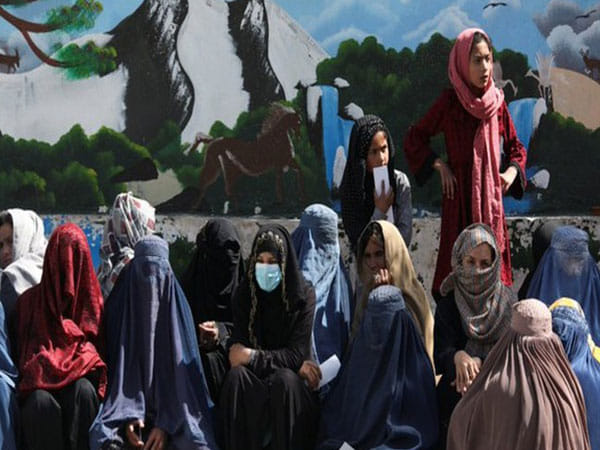Kabul [Afghanistan], November 30 (ANI): The restrictions placed on women and girls in Afghanistan have prompted them to move away from Afghanistan, leading to their migration at a fast pace, Khaama Press reported.
In their own nation, they are not permitted to work or pursue their education. According to research, females have not only been subjected to crimes against humanity but have also been deprived of basic rights and justice by the Taliban administration.
This has caused a large-scale exodus of women from the nation.
Khalida, a 23 year old Afghan girl fled the country following the Taliban takeover. Now, facing an unknown future in Pakistan, she said, “I left Afghanistan, perhaps for a few years or forever,” Khaama Press reported.
Before the Taliban took control of the nation, she was employed for a telecommunications business and a university in Afghanistan. She was able to sustain herself financially thanks to her work and education. She did, however, become one of the hundreds of females who were forced to leave behind their homes, family, friends, and universities as a result of the political developments in Afghanistan.
About eight years ago, a horrific explosion in Kabul claimed the lives of Khalida’s parents.
What forced Khalida to flee her homeland and confront an unknowable future? “I lost the most important people in my life in Afghanistan, and I never considered leaving, but the ban on working and studying prevented me from staying in Afghanistan,” the Afghan girl said, according to Khaama Press.
The Afghan ban on women working and studying, which is frequently upheld by force and compulsion, has had an impact on many facets of women’s lives in the nation.
They no longer have any financial or educational autonomy. A public poll conducted by Khaama Press indicates that women’s standing and power inside families have suffered greatly since the rise of the Taliban, which has resulted in a discernible decline in women’s agency within the family unit.
In one phrase, Khalida encapsulates the difficulties of migration, saying “Migration is a punishment.” In addition to her fear of deportation, one day on her way home from work, she ran across robbers who stole everything she owned. With assistance from locals, she was moved to a hospital.
Khalida and other migrant girls spend most of their time in a windowed room, expressing their worry at the recent decision by Pakistan’s interim government to expels Afghan migrants.
It has been over two years since the Taliban banned girls from attending schools after sixth grade in Afghanistan and has not taken any action to reopen educational institutions for girls.
Since the Taliban took over Afghanistan, they have issued several decrees that impose restrictions on women.
Afghanistan’s women have faced numerous challenges since the Taliban returned to power in 2021. Girls and women in the war-torn country have no access to education, employment or public spaces. (ANI)
This report is auto-generated from ANI news service. ThePrint holds no responsibility for its content.






